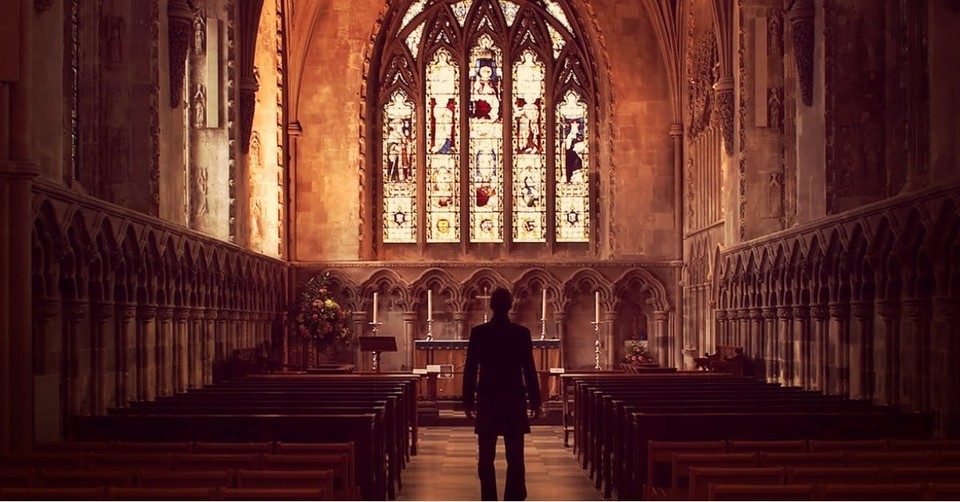Music in the Life of the Believer

I’ve been mulling over and reading about the intersection of music and theology. To be more precise, I’ve wondered about how music can play a part in the life of a Christian to help him or her be more devoted to God, more transformed by the gospel, and more in love with the God who created us to love him with all our being.
Martin Luther said “next to the Word of God, music deserves the highest praise.” From a rather different vantage point, Leonard Bernstein said about Beethoven’s Fifth Symphony “Beethoven… leaves us… with the feeling that something is right in the world, that something checks throughout, something that follows its own laws consistently, something we can trust, that will never let us down.”
It seems that music serves as a powerful antidote to the pure naturalism that prevails in much of our world today. It’s hard to believe we’re just molecules surrounded by matter when we hear a Bach cantata, a Charlie Parker improvisation, or a Nickel Creek riff.
Biologist and philosopher Lewis Thomas was once asked what one artifact we should send out into space as evidence of human achievement. “I would vote for Bach, all of Bach, streamed out into space, over and over again,” he suggested. Then added ruefully, “We would be bragging, of course.”
I am helped a great deal by Jeremie Begbie’s writings and videos. He makes a helpful distinction between thinking about music from a theological perspective (e.g., what does music tell us about God or about our relationship to God?) and experiencing theology through music. The first topic is probably what I’ve been talking about so far in this blog.
Here are just a few thoughts about the second topic—experiencing theology through music. Again, to be a bit more precise, these ideas are about how music can play a sanctifying or deepening role in the life of a Christian.
- Music can connect us to beauty, which could remind us of the way God originally created the world—good, without the ravages and damages of sin and the fall. Music can prompt deeper worship of the God who created all things merely by uttering words. (Note that God used sound to create!)
- Music can serve as a preventative against reductionism—the tendency to think of anything in just one dimension. For example, we can think of people as “just” alternatives to loneliness or solitude. We can think of work as “just” a means to a paycheck. We can think of praying as “just” a way to get God to do things for us. The complexities of music force us to see richness in other things—people, activities, tasks, etc. As we close our eyes and explore the whole of music, which is so much greater than the sum of its parts, we attune our minds to seek similar complexity elsewhere.
- Music can heighten our experience of tension and release. How this happens in music, I hope, is obvious. Certain pieces of music create a sense of “unresolvedness” and, in some cases (e.g., the final movement of Sibelius’ fifth symphony) extend so long that when the resolution finally comes, the exhale feels monumental. In a parallel way, the Bible creates a tension that is only resolved by the cross. It’s the tension between holiness (God’s) and sin (ours). We long for righteousness and goodness, and we resonate with it to a certain extent. But we also feel a tension because we also resonate with the notion that something’s just not right with the world and with us. That tension is only resolved as God’s judgment and grace meet at Calvary. God’s righteous requirement for atonement is satisfied. God’s love provides that atonement. He is both the just and the justifier. Listening to music that extends the tension and releases it can help us appreciate the gospel.
- Music can increase our longing for the consummation of the ages, the final stage of God’s four chapter drama of Creation-Fall-Redemption-Consummation. When a piece of music ends by restating a theme it introduced at the beginning, we find ourselves at home. Yet, that “at-home-ness” seems even better for having been away. And yet, that “at-home-ness” leaves a longing that no piece of music can satisfy.
As C. S. Lewis put it in The Weight of Glory, “The books or the music in which we thought the beauty was located will betray us if we trust to them; it was not in them, it only came through them, and what came through them was longing. These things—the beauty, the memory of our own past—are good images of what we really desire; but if they are mistaken for the thing itself they turn into dumb idols, breaking the hearts of their worshippers. For they are not the thing itself; they are only the scent of a flower we have not found, the echo of a tune we have not heard, news from a country we have never yet visited.”
I hope to return to this topic again and again in future blogs.
Randy Newman has been with the staff of Campus Crusade for Christ since 1980 and currently serves with Faculty Commons, their ministry to university professors. Randy is a Jewish Believer in Jesus and is the former editor of The Messiah-On-Campus Bulletin. He is the author of numerous articles and books including Questioning Evangelism: Engaging People's Hearts the Way Jesus Did and Bringing the Gospel Home: Witnessing to Family Members, Close Friends, and Others Who Know You Well.
Originally published February 13, 2018.





